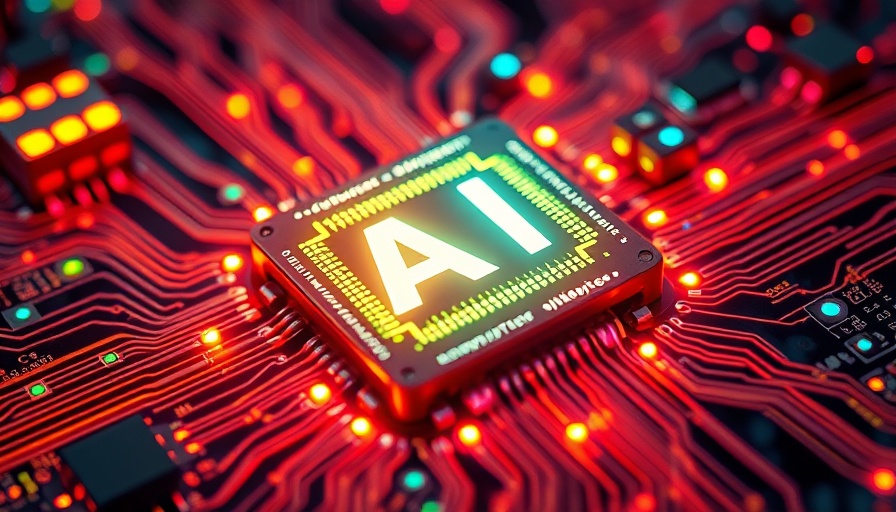
Empowering the Future with AI Infrastructure
The rapid advancement of generative AI and machine learning is not merely a passing trend; it represents a profound shift in how enterprises operate and leverage data. As leaders in the tech industry, such as Dell Technologies, embrace this evolution, businesses must reevaluate their IT infrastructure to remain competitive in the AI era.
Why IT Infrastructure is a Competitive Edge
At Dell's recent event, "Is Your IT Infrastructure Ready for the Age of AI?" the message was clear: today's infrastructure is no longer a mere supportive framework but a fundamental component of an organization’s strategic advantage. Rob Strechay, an executive analyst at SiliconANGLE, articulated that "AI will only be as effective as the infrastructure and processes that support it," emphasizing the importance of a robust technological foundation.
The Role of Dell's PowerEdge Servers
Central to Dell's strategy for AI support is its PowerEdge server lineup. Continuous enhancements over the past year have optimized these servers for AI workloads, ensuring that they can adapt to the rapidly changing demands of enterprises. With integrations of Intel's Xeon 6 processor and Gaudi 3 accelerator, PowerEdge servers are designed to handle AI inferencing tasks more efficiently than ever before.
Collaborative Innovations in AI Workloads
In partnership with Intel, Dell has developed an API for PowerEdge that facilitates streamlined application calls, enabling organizations to harness the power of AI more effectively. Rakesh Mehrotra, Intel's VP of strategy, highlighted how this integration allows for direct communication between applications and the powerful infrastructure Dell provides.
Memory and Core Scalability
Another essential facet of Dell’s AI infrastructure is its collaboration with AMD, which has introduced Turin processors into the PowerEdge ecosystem. Featuring 12-channel DDR5 memory, these processors are adept at managing data-intensive AI applications, ensuring that the memory-to-core ratios scale alongside demand. David Schmidt from Dell underscores that this capability meets the needs of increasing workloads, ensuring reliability and performance.
The Importance of Real-Time Insights
As AI workloads become more complex, maintaining control and performance monitoring of the infrastructure becomes crucial. Dell's OpenManage suite offers real-time insights, allowing organizations to effectively manage the numerous components of their AI environment. These insights are vital for decision-makers who seek to optimize performance and reduce the risks associated with scaling AI technologies.
A New Era of Digital Transformation
The shift towards AI-driven strategies is compelling organizations across all sectors to transform their IT infrastructure. This transformation is not just about technology; it's about integrating innovative practices and maximizing the value of AI. For executives, understanding these shifts and implementing the right infrastructure can lead to significant competitive advantages in their respective markets.
As companies navigate this new landscape, it's imperative that they take steps to assess their current IT capabilities and consider how upgrades and innovations could enhance their journey towards digital transformation. Embracing the changes in infrastructure not only aligns with AI advancements but also sets businesses on a path to sustainability and resource efficiency.
 Add Row
Add Row  Add
Add 




Write A Comment